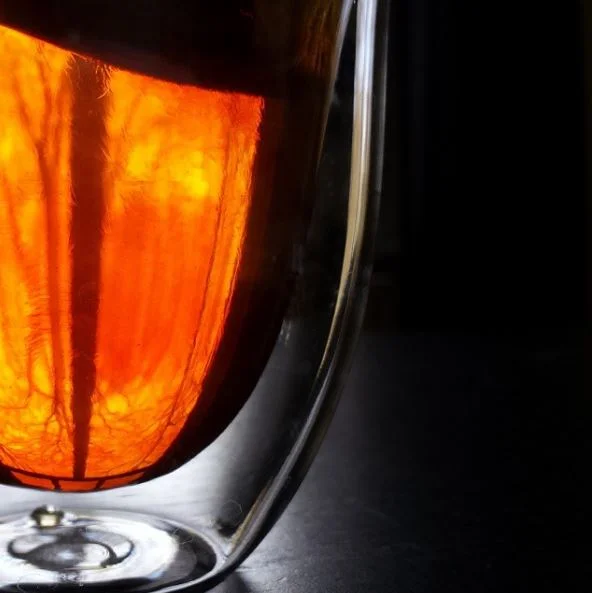A feeling of apathy or being a little forgetful from time to time is nothing unusual. But for some, this could be an early sign of not getting enough thiamine (also known as vitamin B1). Long term, this can have serious consequences, including an increased risk of developing Alzheimer’s disease.
Does the price of your shampoo affect how clean your hair is? Here’s the science
Are shorter, more intense workouts worth the extra sweat when trying to lose weight?
Everybody knows that to lose weight you need to eat less or exercise more – or ideally do both. The evidence supporting the benefits of regular exercise and eating less is overwhelming, but for people looking to lose weight, it remains unclear whether there are extra benefits to be gained from increasing the intensity of workouts.
Why are most people right handed? The answer may be in the mouths of our ancestors
Roughly 90% of humans are right-handed and this is one of the traits that separates us from most other primates who don’t really show any overall preference for left or right handedness. It’s believed that handedness played an important role in human evolution, with a recent study on the earliest evidence of right-handedness in the fossil record shedding light on when and why this trait arose. Interestingly, the clues were found not in our ancient hands, but in our ancient teeth.
A hidden code in our DNA explains how new pieces of genes are made
We’re all here because of mutations. Random changes in genes are what creates variety in a species, and this is what allows it to adapt to new environments and eventually evolve into completely new species. But most random mutations actually disrupt the functions of our genes and so are a common source of genetic diseases.
How the brain helps the body fight bacteria
The brain may not only control our thoughts and basic physical functions. Recent studies indicate that it also controls the way our body responds to the threat of bacterial infections. It does this by boosting the production of a protective molecule called PCTR1 that helps white blood cells kill the invading bacteria.
Too many tabs – why some people can multitask online and others can’t
The internet may be the most comprehensive source of information ever created but it’s also the biggest distraction. Set out to find an answer on the web and it’s all too easy to find yourself flitting between multiple tabs, wondering how you ended up on a page so seemingly irrelevant to the topic you started on.
Always forget to keep your New Year’s resolutions? Smoking and drinking could be why
Do humans need dairy? Here’s the science
Five ways Christmas affects your brain
Christmas is a time of year like no other; gifts are exchanged, little-spoken-to relatives are contacted, and appetising treats are consumed with great gusto. Christmas can be both a time of stress and a time of relaxation. But whether you love or hate Christmas it’s pretty difficult to avoid – and so your brain may be altered by the experience one way or another. Here are some of the main facets of the Christmas experience, and how they might affect your brain.
Why running could keep you awake at night
You’ve probably heard people say they enjoy running because it lets them switch off. Perhaps you feel that way yourself. Well recent research in mice suggests there may actually be a scientific basis for this, because brain activity really does decrease when you’re performing a simple, repetitive action. What’s more, while running may tire your body out, such exercise might actually reduce your brain’s need for sleep.
Why frequent dieting makes you put on weight – and what to do about it
People who regularly go on diets tend to lose weight initially but bounce back and even gain weight after stopping the regime. This phenomenon – dubbed yo-yo dieting – is associated with changes in metabolism and is one reason why the vast majority of calorie-based diets fail. But exactly what causes these metabolic changes has remained a mystery – until now.
Are we sleeping less than we used to? Here are the facts
Many of us might respond to this question with a resounding yes. It is easy to think that we all got better rest in those halcyon days when summers were long and hot, winters were snowy and life was a bit less frenetic. But even if this is true about your own sleep, is it really true of people as a whole?
People with ‘obesity gene’ can still lose weight
It’s been one of the most astonishing changes in human anatomy. In just one generation, people all over the world have got a lot bigger. Although we’re also gradually getting a bit taller, the really big change has been in body fat. And while much of this is put down to lifestyle, some suggest that “obesity genes” mean it is easy for some people to gain weight and more difficult for them to lose weight
A sixth sense? How we can tell that eyes are watching us
We’ve all had that feeling that somebody is watching us – even if we’re not looking directly at their eyes. Sometimes we even experience a feeling of being watched by someone completely outside our field of vision. But how can we explain this phenomenon without resorting to pseudoscientific explanations like extrasensory perception (or a “sixth sense”)?
Why so serious? The untapped value of positive psychology
All we can ever hope to do, Sigmund Freud once wrote, is “to change neurotic misery into common unhappiness”. This pessimistic statement from arguably the most influential psychological theorist of modern times captured the mood that prevailed in psychology through most of the 20th century. That is, most psychologists, psychiatrists and psychoanalysts were essentially guided by a model of the patient that was based on what was wrong with people, and how to deal with these deficiencies.
Why time seems to go by more quickly as we get older
Research Check: is it true only half your friends actually like you?
Does drinking hot tea in summer really cool you down?
I remember as a child, on the rare warm days that we used to get in Britain, my grandmother telling me to “have a cup of black tea … it will help cool you down”. As a seven-year-old, this seemed like a crazy idea, especially when all I wanted was a cold lemonade and another ice cream. But it appears that this old wives’ tale may actually be more Stephen Hawking than Stephen King.
Why can’t we remember our early childhood?
Most of us don’t have any memories from the first three to four years of our lives – in fact, we tend to remember very little of life before the age of seven. And when we do try to think back to our earliest memories, it is often unclear whether they are the real thing or just recollections based on photos or stories told to us by others.













